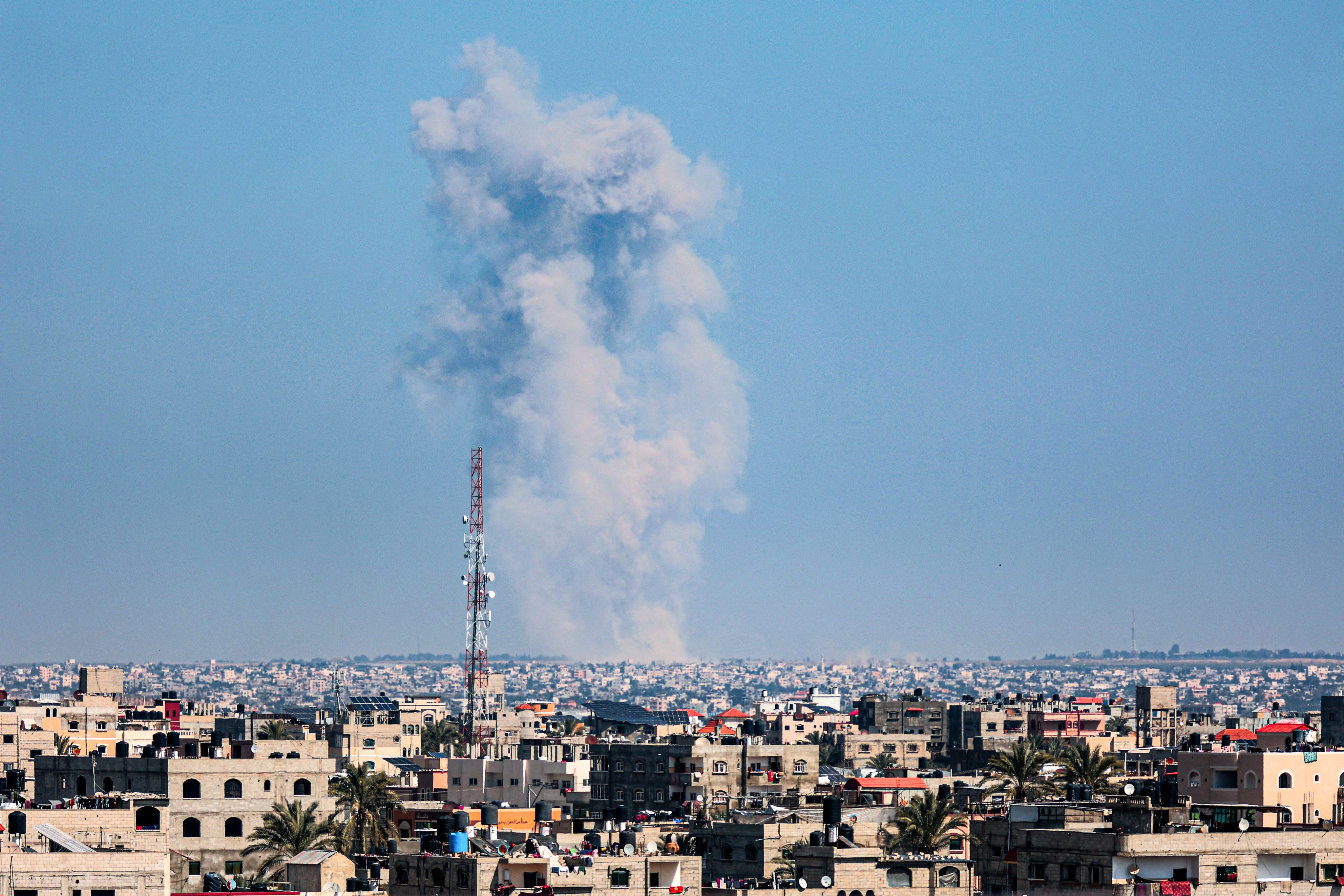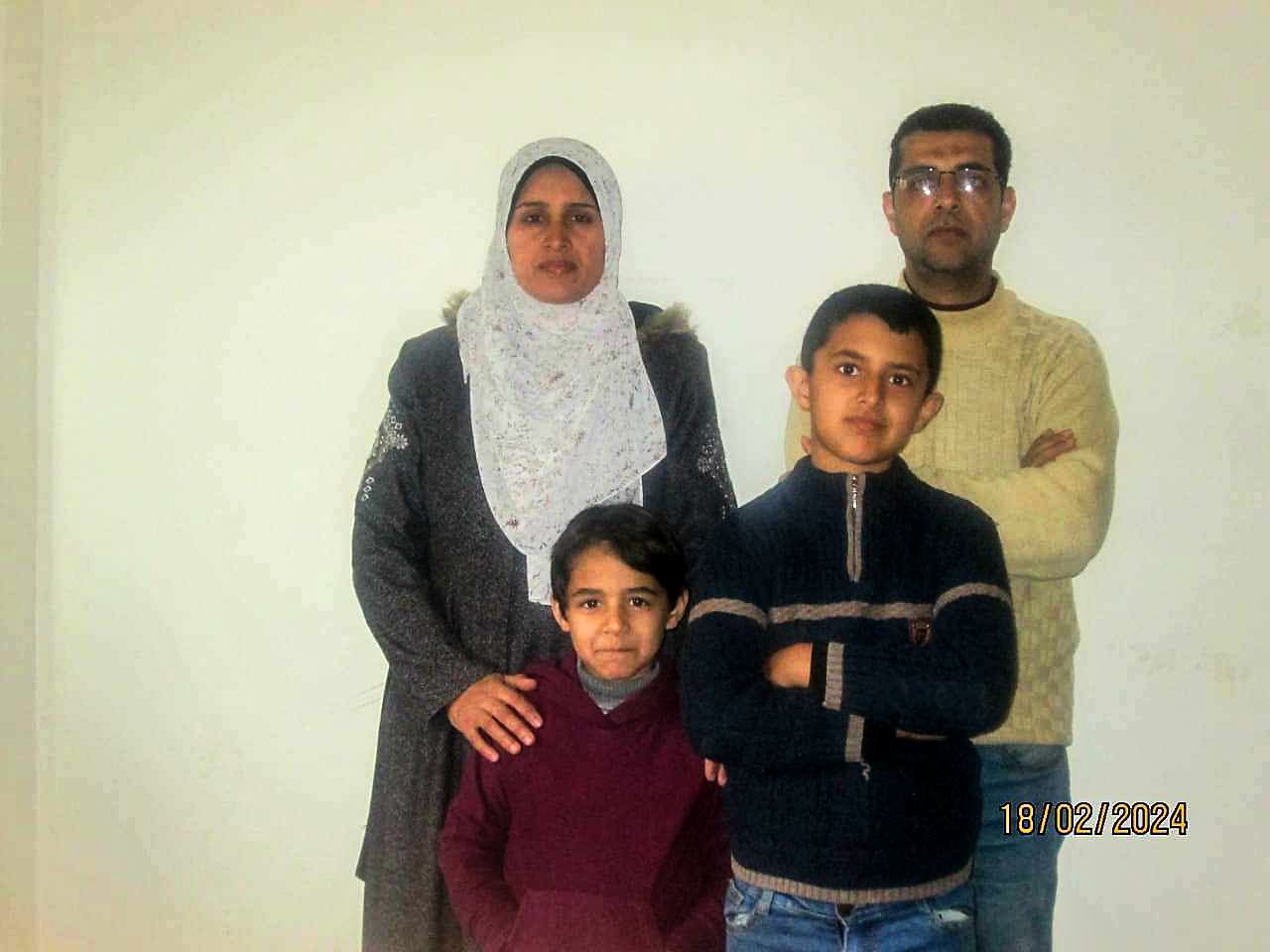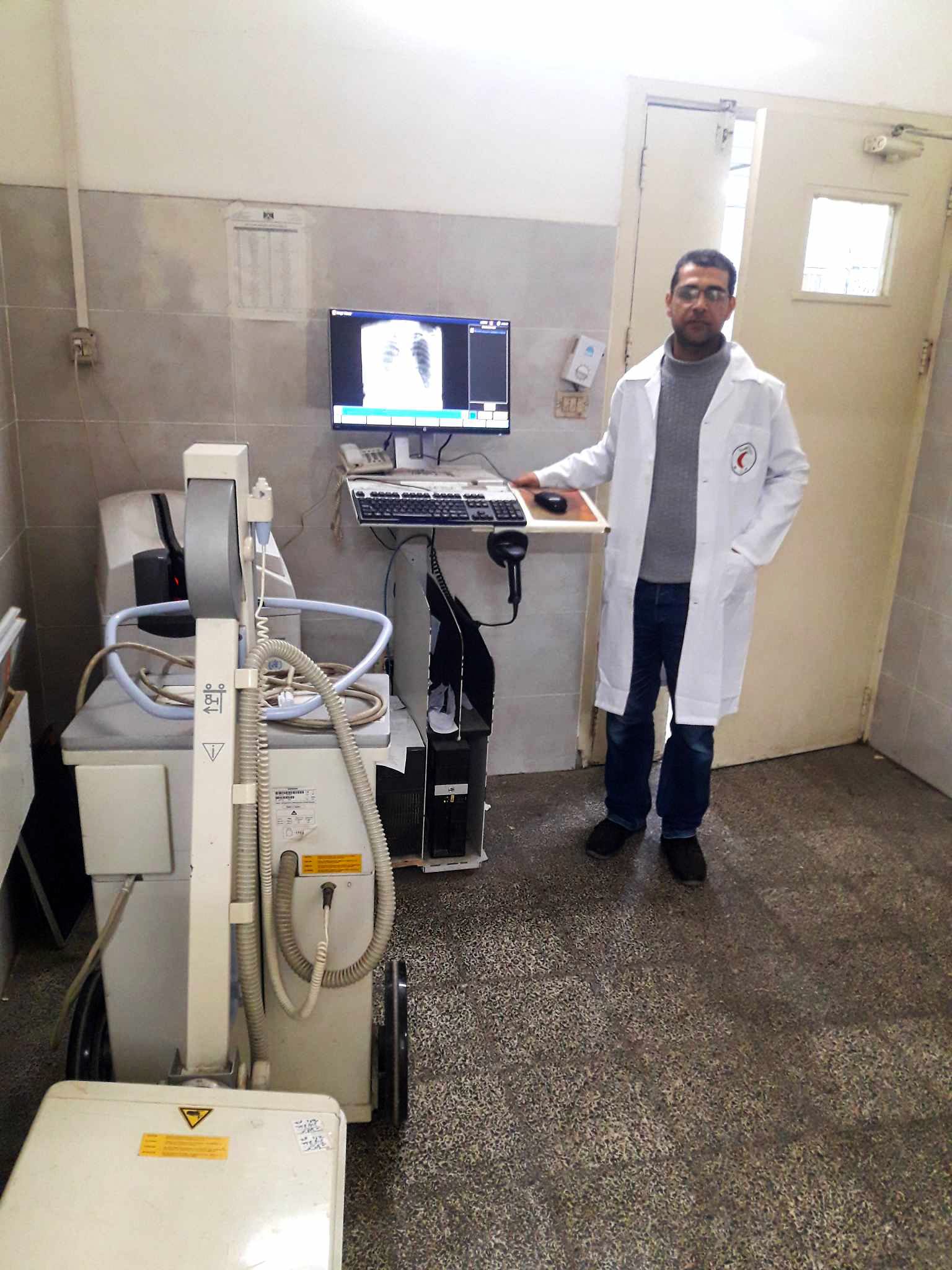Under siege in Rafah

Radiographers work under pressure in many demanding circumstances. Wherever we hear of traumatic situations around the world, SoR members know that our sisters and brothers in the profession will be involved in delivering essential care. This article hears of one radiographer’s first hand experiences of the conflict in Gaza. This conflict came about following the attack by Hamas on 7 October 2023, when on 27 October the Israeli government initiated a large-scale military response in Gaza. (Read the full SoR response to the situation in Gaza here). Radiographer Tamer Ganem, based at the Mohammed Yousef El-Najar Hospital in Rafah, shares his experience of living and working in southern Gaza.
I am Egyptian and live in Rafah city, Gaza, with my wife and two children who are six and 10 years old. My full-time job is as a Diagnostic Radiographer.
My life, and that of my family and friends, changed significantly on 7 October. I understand the Israeli response intends to seek out and destroy Hamas, but in doing so tens of thousands of Palestinian civilians have been killed, tens of thousands have been injured and there has been a massive displacement of people from the bombed-out areas in Gaza.
Due to the Rafah crossing into Egypt being closed, the displaced people had no choice but to congregate in open spaces in and around Rafah, my city. Many live in tents or in bombed out ruins.
Tamer and his family
Tamer and his family
With hospitals being destroyed in other cities, this has placed an impossibly large burden on my hospital in Rafah. Our current situation is one of being under siege, and at the time of writing this article we are under daily threat of my city being invaded and probably destroyed.
My role as a radiographer transformed as the war started, and many factors account for this. As a radiographer I face many daily risks because of the war – even travelling to work can be dangerous.
Due to the high volume of radiography work I need to do on a routine basis, I often don’t get to sleep regularly. Even getting a bit of rest or downtime during the working day can be problematic.
Medical imaging rooms have had to be transformed into emergency rooms to receive and treat patients. Unfortunately, many of our X-ray machines do not meet the needs of patients because they can be unreliable, and lots of them are old. Most patients have severe head, leg, and chest injuries.
The patients frequently have shrapnel fragments from bombs which need locating and removing. Many patients have severe fractures. Most patients that I see have serious injuries that require X-ray imaging within operating rooms.
My salary as a radiographer has been impacted negatively too because of the war, and as you might imagine this has consequences on my ability to provide for my family.
From a broader healthcare perspective, it is probably worth me mentioning that blood is needed very often and there is a constant need for the people of Gaza to give blood frequently for it to be used on wounded patients.
People with long term conditions, such as cancer, are no longer treated. Their quality of life is poor and without care and treatment they will deteriorate and certainly die. Schools of radiography are closed, along with other healthcare training centres.
The impact of war on my family is massive. My children no longer attend school, and they are unable to see many of their friends. Electrical power and the internet are intermittent, making life very hard. The things I do socially are limited and include cleaning the house, exercising, playing with my children, and importantly trying to educate my children.
As a family, when we can, we watch videos on our computer via the internet. However, communication is poor at times, this includes the internet being unreliable.
Having said that, we can cope with poor communication, and we can live without online videos, but what we do find very hard to cope with is the lack of fresh water and good food. All of this has two negative impacts on me. First, the lack of fresh water and good food makes it hard for me to work; second, I constantly worry about the potential negative health and wellbeing consequences on my wife and children.
I registered with my family to travel back to my native country Egypt through the Rafah crossing a long time ago, but so far I have not received a response. In the last few weeks, the HCPC [Health and Care Professions Council] approved my application to become regulated to practise as a diagnostic radiographer within the UK.
This presents me and my family with hope for the future, but perhaps more pressing is that the Rafah crossing needs to open to allow me and my family to enter Egypt. Being in Egypt means my family can be safe and free from harm. Every day, I live in hope for a better and safer future.
I am Egyptian and live in Rafah city, Gaza, with my wife and two children who are six and 10 years old. My full-time job is as a Diagnostic Radiographer.
My life, and that of my family and friends, changed significantly on 7 October. I understand the Israeli response intends to seek out and destroy Hamas, but in doing so tens of thousands of Palestinian civilians have been killed, tens of thousands have been injured and there has been a massive displacement of people from the bombed-out areas in Gaza.
Due to the Rafah crossing into Egypt being closed, the displaced people had no choice but to congregate in open spaces in and around Rafah, my city. Many live in tents or in bombed out ruins.
Tamer and his family
Tamer and his family
With hospitals being destroyed in other cities, this has placed an impossibly large burden on my hospital in Rafah. Our current situation is one of being under siege, and at the time of writing this article we are under daily threat of my city being invaded and probably destroyed.
My role as a radiographer transformed as the war started, and many factors account for this. As a radiographer I face many daily risks because of the war – even travelling to work can be dangerous.
Due to the high volume of radiography work I need to do on a routine basis, I often don’t get to sleep regularly. Even getting a bit of rest or downtime during the working day can be problematic.
Medical imaging rooms have had to be transformed into emergency rooms to receive and treat patients. Unfortunately, many of our X-ray machines do not meet the needs of patients because they can be unreliable, and lots of them are old. Most patients have severe head, leg, and chest injuries.
The patients frequently have shrapnel fragments from bombs which need locating and removing. Many patients have severe fractures. Most patients that I see have serious injuries that require X-ray imaging within operating rooms.
My salary as a radiographer has been impacted negatively too because of the war, and as you might imagine this has consequences on my ability to provide for my family.
From a broader healthcare perspective, it is probably worth me mentioning that blood is needed very often and there is a constant need for the people of Gaza to give blood frequently for it to be used on wounded patients.
People with long term conditions, such as cancer, are no longer treated. Their quality of life is poor and without care and treatment they will deteriorate and certainly die. Schools of radiography are closed, along with other healthcare training centres.
The impact of war on my family is massive. My children no longer attend school, and they are unable to see many of their friends. Electrical power and the internet are intermittent, making life very hard. The things I do socially are limited and include cleaning the house, exercising, playing with my children, and importantly trying to educate my children.
As a family, when we can, we watch videos on our computer via the internet. However, communication is poor at times, this includes the internet being unreliable.
Having said that, we can cope with poor communication, and we can live without online videos, but what we do find very hard to cope with is the lack of fresh water and good food. All of this has two negative impacts on me. First, the lack of fresh water and good food makes it hard for me to work; second, I constantly worry about the potential negative health and wellbeing consequences on my wife and children.
I registered with my family to travel back to my native country Egypt through the Rafah crossing a long time ago, but so far I have not received a response. In the last few weeks, the HCPC [Health and Care Professions Council] approved my application to become regulated to practise as a diagnostic radiographer within the UK.
This presents me and my family with hope for the future, but perhaps more pressing is that the Rafah crossing needs to open to allow me and my family to enter Egypt. Being in Egypt means my family can be safe and free from harm. Every day, I live in hope for a better and safer future.
Acknowledgement
This article was written under difficult circumstances and with limited resources. It was ghost-written by my Facebook friend Professor Emeritus Peter Hogg, with information provided to him through Facebook Messenger. I wish to thank Peter for the time he has taken to help share my story.
More on Tamer's hopes of relocating
Tamer hopes to be able to travel to the UK to work as a Diagnostic Radiographer. Around two years ago he applied to the Health and Care Professions Council (HCPC) to become regulated as a Diagnostic Radiographer and in the last few weeks he has been approved by the HCPC. But Tamer says his hopes of working in the UK still face some significant hurdles: raising money to pay the HCPC fees and money to relocate to the UK, finding a job in the UK, and a visa to work here.
Image credit: SAID KHATIB/AFP via Getty Images
Tamer Ganem
Now read....






